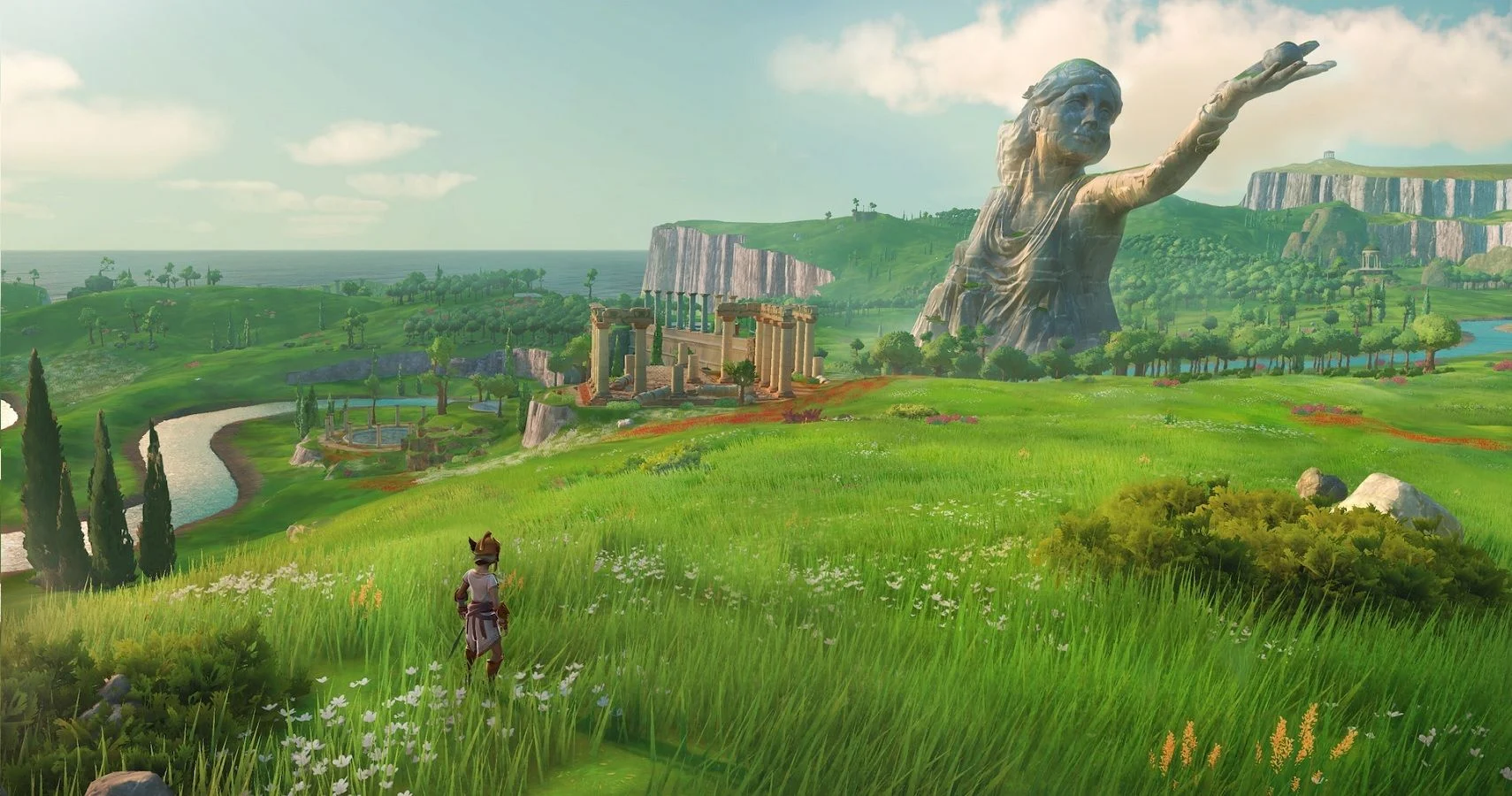Exploring Open-World Games: The Ultimate Adventures Await
Open-world games offer players the opportunity to explore vast, immersive virtual worlds, filled with endless possibilities and adventures. From sprawling cities to serene countryside, players can embark on epic quests, discover hidden treasures, and interact with a diverse range of characters. With the freedom to roam and the ability to shape their own destinies, players are truly in for the ultimate adventures in open-world games.
For those seeking a truly immersive gaming experience, open-world games provide a sense of freedom and exploration unlike any other genre. The ability to customize characters, engage in non-linear storytelling, and participate in dynamic, emergent gameplay mechanics sets open-world games apart from traditional linear experiences. Players can immerse themselves in rich, detailed environments, tackle a variety of side quests and activities, and uncover hidden secrets, making every playthrough a unique and personal journey. Whether it’s navigating through dense forests, scaling towering mountains, or sailing across vast oceans, the sense of wonder and discovery in open-world games is truly unparalleled.
1. What are open-world games?
Open-world games are a genre of video games that offer players a vast, expansive virtual world to explore. Unlike linear games, open-world games allow players to roam freely and make choices that impact the game’s storyline and their overall experience. These games often feature non-linear gameplay, dynamic environments, and a high degree of player agency, offering an immersive and interactive gaming experience.
Players can engage in various activities such as exploration, combat, questing, and interaction with non-playable characters (NPCs) within the game world. The open-world design encourages players to discover hidden secrets, complete side missions, and create their own adventures, fostering a sense of freedom and autonomy within the game.
2. The appeal of open-world games
Open-world games offer a sense of freedom and immersion that is unparalleled in other gaming genres. The expansive game worlds, realistic environments, and interactive elements draw players in and allow them to lose themselves in the virtual experience. The ability to make choices and explore the world at their own pace gives players a sense of agency and control, creating a deeply engaging and personalized gaming experience.
Additionally, open-world games often feature stunning visuals, dynamic weather systems, and day-night cycles that contribute to the overall sense of realism and immersion. The freedom to tackle challenges in any order, pursue different gameplay styles, and uncover hidden secrets adds an element of unpredictability and excitement, keeping players invested in the game for hours on end.
3. The evolution of open-world games
Open-world games have evolved significantly since their inception, with advancements in technology allowing for more detailed and expansive game worlds. Early open-world games, such as “The Legend of Zelda: Ocarina of Time” and “Grand Theft Auto III,” laid the foundation for the genre, offering players a taste of freedom and exploration within a virtual environment.
As technology has advanced, open-world games have become more ambitious, featuring larger and more intricately designed worlds, improved graphics, and more complex gameplay mechanics. Games like “The Elder Scrolls V: Skyrim,” “Red Dead Redemption 2,” and “The Witcher 3: Wild Hunt” are prime examples of the genre’s evolution, offering vast, living, and breathing worlds for players to get lost in.
4. Key features of open-world games
Open-world games are characterized by several key features that set them apart from other genres. These features include a vast and open game world, non-linear gameplay, player agency, exploration, dynamic environments, and emergent gameplay. The game world is often filled with diverse landscapes, cities, wildlife, and hidden secrets, encouraging players to explore and discover new experiences.
Additionally, open-world games often feature a day-night cycle, weather systems, and a living ecosystem that reacts to the player’s actions, creating a sense of realism and immersion. The non-linear gameplay allows players to tackle challenges in any order and make choices that impact the game’s outcome, while emergent gameplay ensures that unexpected events and experiences can arise based on the player’s actions within the world.
5. Popular open-world game franchises
Several popular open-world game franchises have captivated players with their expansive worlds and immersive gameplay. Franchises like “Grand Theft Auto,” “The Elder Scrolls,” “Red Dead Redemption,” “Assassin’s Creed,” and “The Legend of Zelda” have all made significant contributions to the open-world genre, offering unique settings, compelling narratives, and diverse gameplay experiences.
These franchises have continued to push the boundaries of what open-world games can offer, introducing new features, improving graphics, and expanding the scope of their virtual worlds with each new installment. Their enduring popularity and critical acclaim highlight the enduring appeal of open-world games among players of all ages and gaming preferences.
6. The impact of open-world games on the gaming industry
Open-world games have had a profound impact on the gaming industry, influencing game design, player expectations, and the way stories are told in video games. The success of open-world games has led to an increased demand for expansive, immersive experiences, prompting developers to create larger and more detailed game worlds to satisfy players’ appetites for exploration and discovery.
Furthermore, open-world games have inspired innovation in storytelling and player agency, with games adopting branching narratives, moral choices, and dynamic consequences that reflect the player’s decisions. The success of open-world games has also influenced other genres, with elements of open-world design appearing in action-adventure, role-playing, and even multiplayer games.
7. Challenges in developing open-world games
Developing open-world games presents unique challenges for game developers, as creating a vast, seamless, and immersive game world requires a significant investment of time, resources, and technical expertise. Designing a living, breathing world that feels dynamic and responsive to player actions while maintaining a high level of detail and realism is no small feat.
Additionally, ensuring that the game world remains engaging and free of repetitive content as players explore requires careful planning and creative design. Balancing the freedom of exploration with a compelling narrative and meaningful gameplay experiences is another challenge that developers must navigate when creating open-world games.
8. The future of open-world games
The future of open-world games is promising, with advancements in technology allowing for even more expansive and detailed virtual worlds. As hardware capabilities continue to improve, developers will have the opportunity to create larger, more immersive game worlds with unprecedented levels of realism and interactivity.
Furthermore, the evolution of open-world games may involve greater integration of emergent gameplay, artificial intelligence, and player-driven storytelling, allowing for more dynamic and personalized experiences. The boundaries between single-player and multiplayer open-world games may also continue to blur, offering new opportunities for cooperative and competitive gameplay within expansive virtual worlds.
9. Tips for getting the most out of open-world games
For players looking to fully immerse themselves in open-world games, there are several tips to enhance their experience. Taking the time to explore the game world at their own pace, engaging with side quests and non-playable characters, and experimenting with different gameplay styles can lead to new discoveries and unexpected adventures.
Additionally, paying attention to environmental details, taking in the sights and sounds of the game world, and embracing the freedom to create their own stories within the game can heighten the sense of immersion and enjoyment. Open-world games are designed to be experienced as a personal journey, and taking the time to savor the experience can lead to a more fulfilling and memorable gaming experience.
10. Must-play open-world games
There are countless open-world games available to players, each offering its own unique setting, gameplay mechanics, and storytelling. Some must-play open-world games that have left a lasting impact on the gaming industry and players alike include “The Legend of Zelda: Breath of the Wild,” “The Witcher 3: Wild Hunt,” “Red Dead Redemption 2,” “Grand Theft Auto V,” and “Skyrim.”
These games showcase the best of what open-world gaming has to offer, providing expansive worlds to explore, compelling narratives, and a wealth of activities to engage in. Whether players are drawn to fantasy, historical, modern, or futuristic settings, there is an open-world game that can offer them an unforgettable adventure and a truly immersive gaming experience.
| Game Title | Developer | Release Date |
|---|---|---|
| The Legend of Zelda: Breath of the Wild | Nintendo | 2017 |
| Red Dead Redemption 2 | Rockstar Games | 2018 |
| The Witcher 3: Wild Hunt | CD Projekt | 2015 |
| Assassin’s Creed Odyssey | Ubisoft | 2018 |



